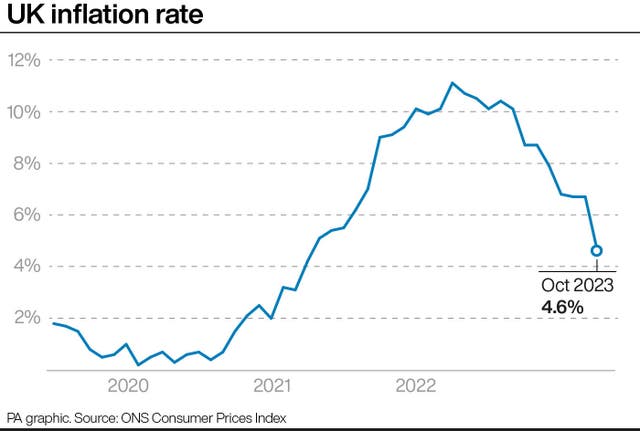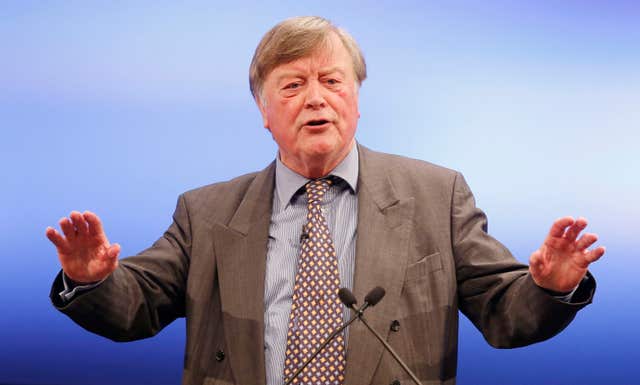Chancellor Jeremy Hunt argued that he needs to take “difficult decisions” as he considers squeezing welfare payments by billions while slashing inheritance tax in a bid to appeal to more traditional Tory voters.
But reports emerged that Prime Minister Rishi Sunak and his Chancellor were weighing up cuts to income tax or national insurance at the 11th hour, as they were warned by northern Conservatives that Wednesday’s autumn statement should focus instead on lower-paid workers and businesses.
Mr Hunt has hinted he could unveil tax cuts as he promised an “autumn statement for growth” and said now is a “turning point for the economy” after inflation was halved.
But slashing inheritance tax while effectively cutting working-age welfare payments for millions of people would draw criticism for supporting the wealthy while society struggles.
Next week will be the Autumn Statement for Growth. Here is some of what to expect ? pic.twitter.com/9HxaKxMvno
— Jeremy Hunt (@Jeremy_Hunt) November 18, 2023
Mr Hunt told broadcasters there is “no east way to reduce the tax burden” and argued: “What we need to do is take difficult decisions to reform the welfare state.”
Typically ministers use the September figure for inflation when uprating working-age benefits, which would mean a 6.7% hike.
But Mr Hunt has not ruled out using October’s far lower figure of 4.6%, which economists say would cut spending by around £3 billion.
The savings would largely affect working-age households receiving disability or means-tested benefits, according to the Institute for Fiscal Studies.

Former minister Jonathan Gullis, who is the MP for Stoke-on-Trent North, said he believes inheritance tax should be “eventually abolished” but said that “now is not the right time for this tax cut”.
He argued that cutting the basic rate of income tax and increasing the threshold for the 40p rate would help families “really feeling the pinch”.
Slashing inheritance tax – potentially by half – would be popular with the Tory right as Mr Sunak comes under growing pressure from that wing of his party, but would only directly benefit a small proportion of the public.
Only around 4% of deaths in 2020/21 resulted in inheritance tax being paid, with exemptions allowing many couples to pass on up to £1 million tax-free.

The newspaper also said that they could put off the mooted cut to inheritance tax until the spring budget, to avoid allegations they are lavishing the rich with a handout as many struggle.
Whitehall sources described the report as speculation.
Inheritance tax is charged at 40% on estates of more than £325,000, with an extra £175,000 towards a main residence passed to direct descendants. But the Tories are said to be considering cutting it in half before a potential promise to abolish it entirely in the next Tory manifesto, which could cost £7 billion a year in the short term.
However, the Institute for Fiscal Studies forecast that the amount that the tax raises could rise to more than £15 billion by 2033.
However, Liberal Democrat Treasury spokeswoman Sarah Olney said: “This scheme would create a postcode lottery system leaving millions of families still facing higher energy bills while others benefit.”
Mrs Braverman gave an interview criticising Mr Sunak after he sacked her in the wake of her suggesting people sleeping rough was a “lifestyle choice” and her accusing police of bias over pro-Palestine rallies.
She told the Mail on Sunday the Prime Minister had been lacking “moral leadership” over the marches in the last month, accusing him of making “tepid and timid statements”.
The former minister also said that she has “got a copy” of a pact she alleges she signed with Mr Sunak in exchange for her support for him to become Prime Minister last October.
But she was not releasing it – yet.






